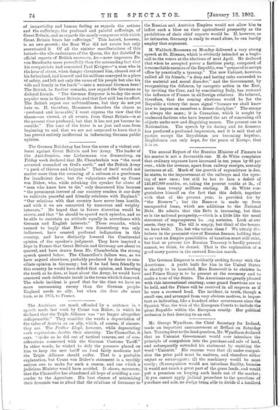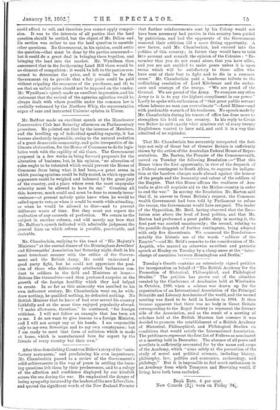Mr. George Wyndham, the Chief Secretary for Ireland, made an
important announcement at Belfast on Saturday last. Turning first to the land question, Mr. Wyndham deolared that no Unionist Government would ever introduee the principle of compulsion into the purchase and sale of lasid, and subsequently extended his statement by omitting the word "Unionist." His reasons were that (1) under compul- sion the price paid must be uuiforni, and therefore either unjust or extravagant; (2) the machinery would be most costly; (3) compulsion would not introduce finality, because it would not touch a great part of the grass lands, and would put 'a premium on keeping such lands out of the market; (4) you cannot apply judicial procedure to the questions 'of purchase and sale, no Judge being able to decide if a landlord
could afford to sell, and therefore you cannot apply compul- sion. It was to the interests of all parties that the land question should be settled, but the object of Mr. Dillon and his section was rather to use the land question to unsettle other questions. No Government, in his opinion, could settle the question—that must be done by the parties concerned— but it could do a great deal in bringing them together, and bringing the land into the market. Mr. Wyndham then announced that in the forthcoming Land Bill there would be no element of compulsion : it would be left to the parties con- cerned to determine the price, and it would be for the Government (a) to provide that a fair price could be paid without crippling the resources of the purchaser, and (b) to see that an unfair price should not be imposed on the vendor. Mr. Wyndham's speech made an excellent impression, and his statement that the revival of the agrarian agitation would be always dealt with where possible under the common law is cordially welcomed by the Northern. Whig, the representative organ of sane and instructed Unionist opinion in Ulster.







































 Previous page
Previous page